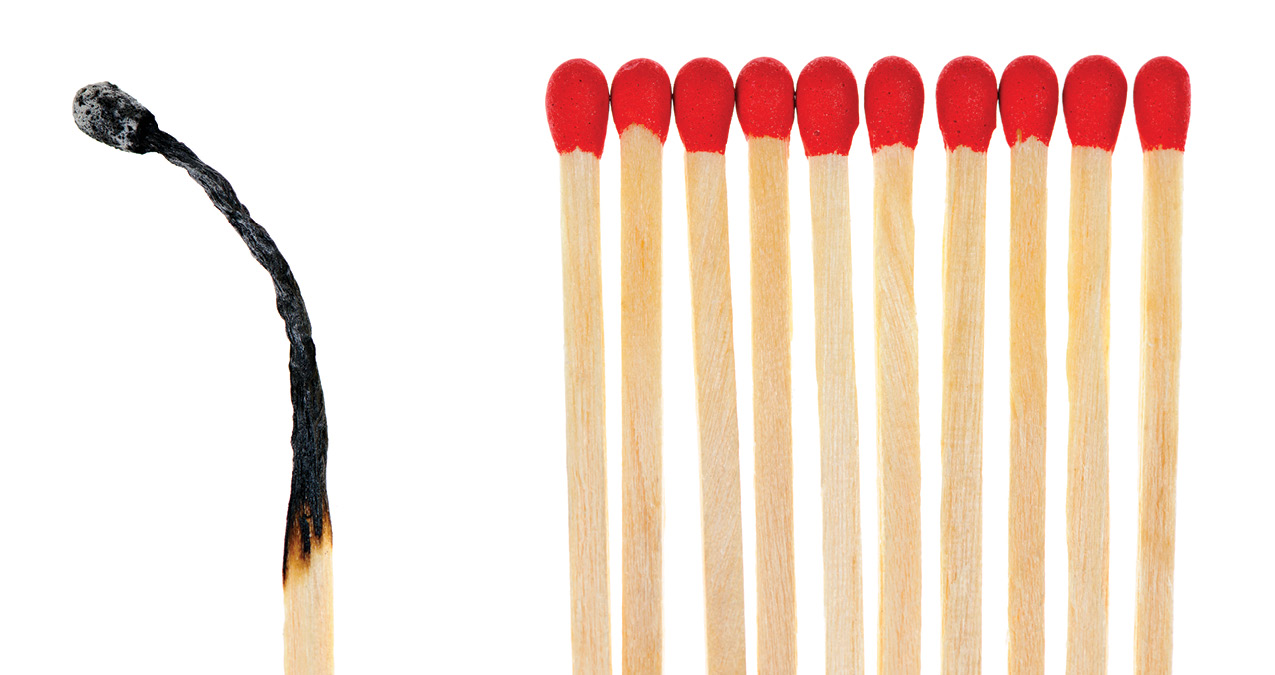By Michelle Corbin | STC Fellow

As I write this in early September 2020, we are six to seven months into dealing with the global COVID-19 pandemic, and I think most people are starting to feel a bit weary—or even a bit of burnout—from it. The burnout we feel from dealing with the pandemic is much the same as the burnout we can feel in our careers. I have dealt with career burnout twice so far in my career, and I’m working really hard to not hit it again, right now, because I don’t need a double whammy of burnout in both my personal and professional lives.
What Is Burnout?
If you do an online search for “avoiding burnout” (Google suggests “avoiding burnout during COVID-19”) or “treating burnout,” you will find a variety of useful articles and resources from healthcare sites like the Centers for Disease Control and Prevention, Mayo Clinic, and Healthline, and also from business magazines like Forbes and Inc., and, of course, articles from news sources like The New York Times and BBC. (The resources at the end of this column are the collection that I consulted as I wrote this. I encourage you to explore them, and others, for yourself.)
The best definition of burnout that I found was in a Healthline article: Burnout is a “severe stress condition” and a “state of mental and physical exhaustion that can zap the joy out of your career” (and life in general these days). I find burnout to be a paralyzing condition that has affected me in these ways as a technical editor:
- Procrastination and missing deadlines
- Decision fatigue
- Apathy and detachment
Procrastination and Missing Deadlines
Early in my career, I became a maniacal time manager. I devoured everything by Stephen Covey (of 7 Habits of Highly Effective People fame) to start, and I dabbled a bit with David Allen (of Getting Things Done fame). So, later in my career, when I started procrastinating and missing deadlines on some of the more basic tasks each week, I knew something was up. As a technical editor, it is especially important to not miss deadlines, otherwise the writers whom you support will also miss deadlines (or they’ll simply just ignore your work to make their deadlines, which is totally counterproductive).
Decision Fatigue
Another key symptom or issue with burnout is decision fatigue. Every single decision is just too much to handle. As a technical editor (and a technical writer), you constantly make decisions about the content you create. From what content to add or remove, to how to organize the content, to the use of passive voice, to the use of commas, you have to make a lot of decisions about what’s best for your users or what the style guide says you should do related to a grammar or style issue. When decision fatigue plagues you, it leads back to procrastination. It also leads you down the dark path of apathy and detachment.
Apathy and Detachment
If there is one thing that technical editors cannot be, it is apathetic. As the arbiters of quality, technical editors have to care about all the details and standards that go into delivering high-quality content. We are often the first readers, or first users, of the content. If we feel detached from our quality assurance processes, our users will definitely suffer.
Beating Burnout
What can we do to avoid burnout? How can we beat it? Here is a list of tactics that I have compiled from my research. I have tried and used some of these to beat burnout in the past, and I’m using them today in dealing with the pandemic burnout that’s bleeding over into some work burnout:
- First and foremost, take care of your physical needs. Eat well, exercise, go outside, and sleep more.
- Secondly, do not suffer in silence. Talk with your manager, your colleagues, your family, and your friends about the feelings of exhaustion, overwhelmedness, escapism, or irritability that are all a part of burnout.
- Break large tasks down into smaller ones. Document your accomplishments both small and large. Small wins really help combat the mental burnout.
- Take breaks throughout the day. Walk away from the work for a bit.
- Set boundaries for work. Keep them. Do the things that you enjoy doing outside of work.
- Take your vacation time! The longer breaks (even just a few long weekends every so often) from the stress and overwhelmedness will help. If your burnout is bad enough, take two weeks off, focus on taking care of yourself, and see if you can come back refreshed from the break. (Of course, in these pandemic times, it is really hard to take vacations.)
- Last, if you are still struggling, change up your job if you can. Figure out what work you love and what work you dislike, and try to do more of what you love more often. Find ways to tweak how you do your job.

In Editing Matters, Michelle Corbin covers matters (topics) about editing that matter (are of consequence) to communicators of all kinds. Watch this space to understand more about editing and what you can do to improve the quality of your content. To suggest a topic or ask a question, contact Michelle at michelle.l.corbin@gmail.com.
References
Caprino, Kathy. 2014. “How to Cure Your Burnout without Quitting Your Job.” Forbes, 7 November 2014. https://www.forbes.com/sites/kathycaprino/2014/11/07/how-to-cure-your-burnout-without-quitting-your-job/.
Centers for Disease Control and Prevention. 2020. “Employees: How to Cope with Job Stress and Build Resilience During the COVID-19 Pandemic.” Updated 23 December 2020. https://www.cdc.gov/coronavirus/2019-ncov/community/mental-health-non-healthcare.html.
Discala, John E. 2018. “5 Proven (and Not Obvious) Ways to Avoid Burning Out.” Inc., 16 March 2018. https://www.inc.com/john-discala/researchers-studied-workers-from-155-countries-found-most-arent-engaged-here-are-5-ways-to-avoid-burnout.html.
Fraga, Juli. 2019. “A Guide to Burnout.” Healthline, updated 18 May 2019. https://www.healthline.com/health/tips-for-identifying-and-preventing-burnout.
Gorvett, Zaria. 2020. “How to Tell If You’re Close to Burning Out.” BBC, 29 May 2020. https://www.bbc.com/worklife/article/20190610-how-to-tell-if-youve-got-pre-burnout
Henry, Alan. 2015. “How to Recognize the Signs of Burnout before You’re Burned Out.” Lifehacker, 9 December 2015. https://lifehacker.com/how-to-recognize-the-signs-of-burnout-before-youre-burn-1746870361.
Ho, Leon. 2020. “Burnout from Work? 7 Research-Backed Strategies to Recover.” Lifehack, updated 14 December 2020. https://www.lifehack.org/871875/burnout-from-work.
Lufkin, Bryan. 2020. “How to Avoid Burnout Amid a Pandemic.” BBC, 30 March 2020. https://www.bbc.com/worklife/article/20200330-covid-19-how-to-learn-a-new-skill-in-coronavirus-quarantine.
Mayo Clinic. n.d. “Job Burnout: How to Spot It and Take Action.” Accessed 1 September 2020. https://www.mayoclinic.org/healthy-lifestyle/adult-health/in-depth/burnout/art-20046642


